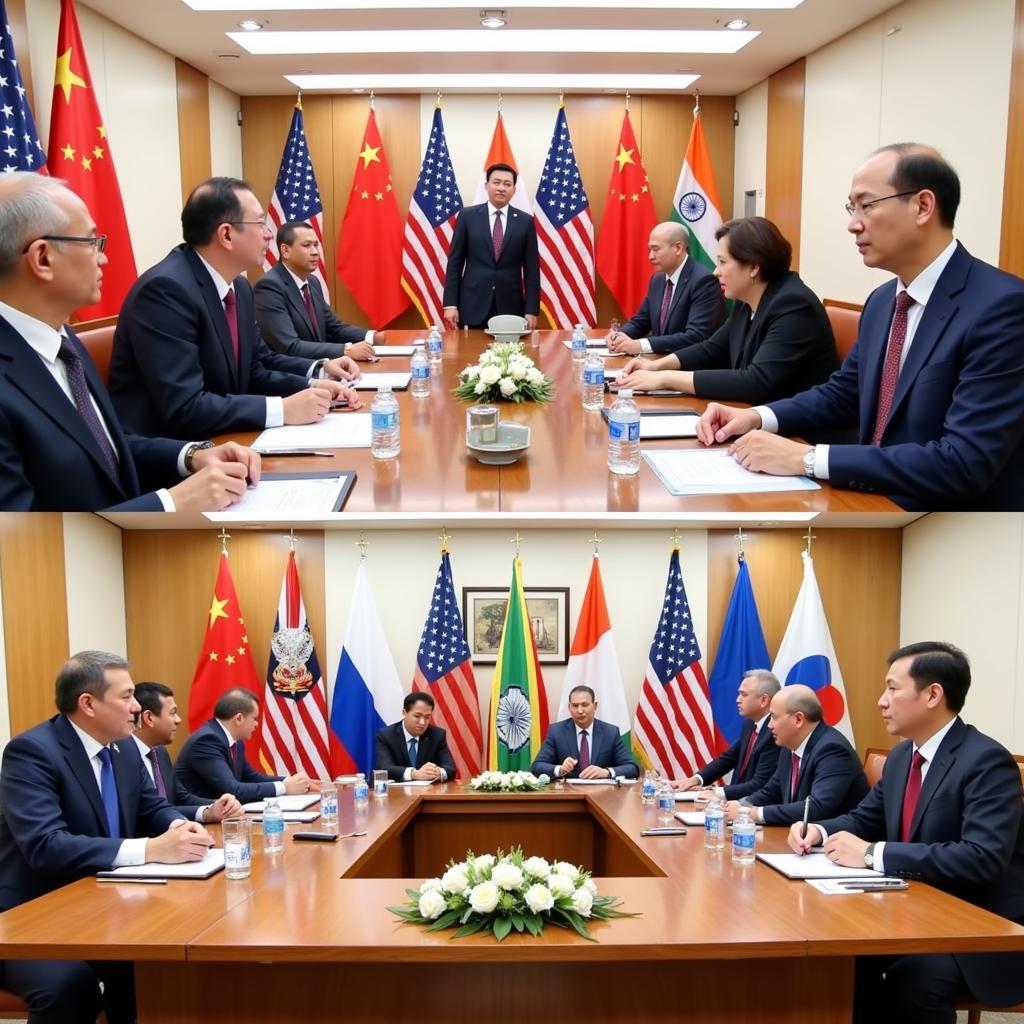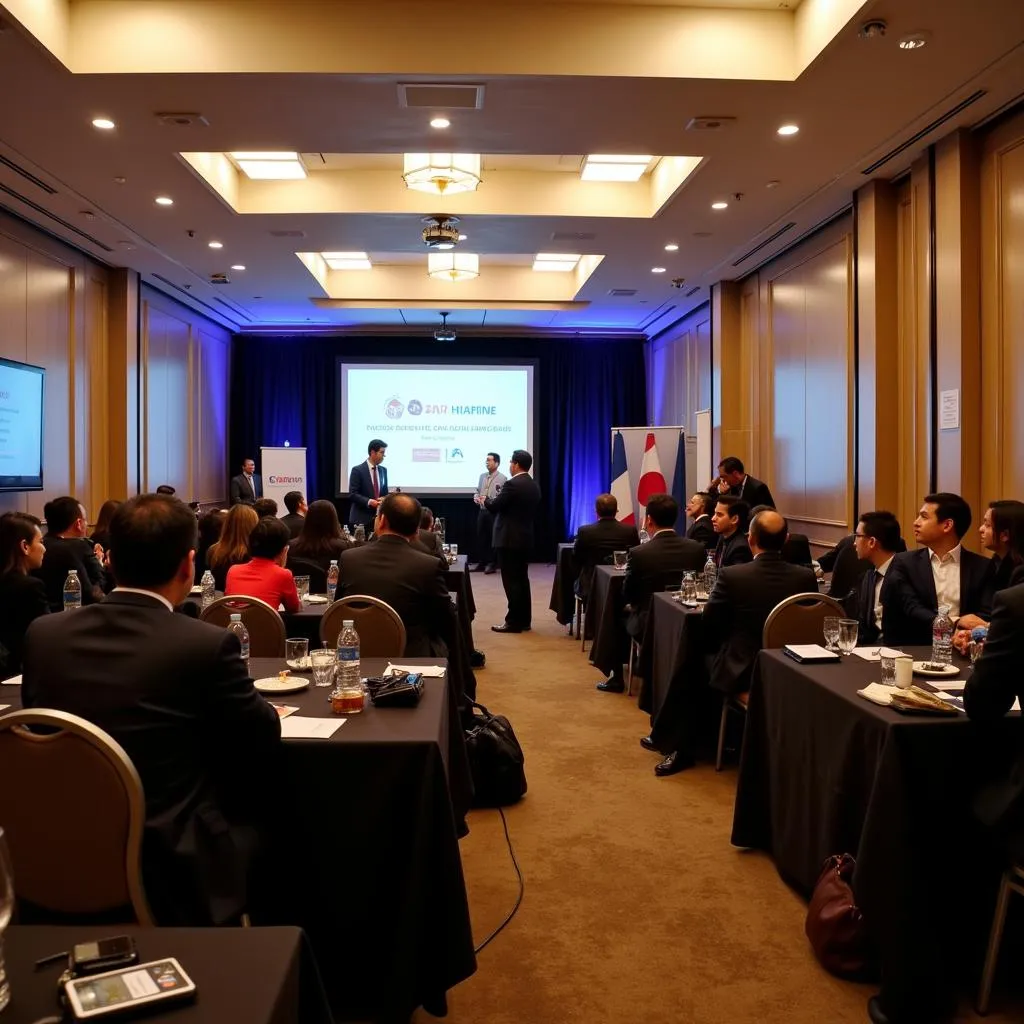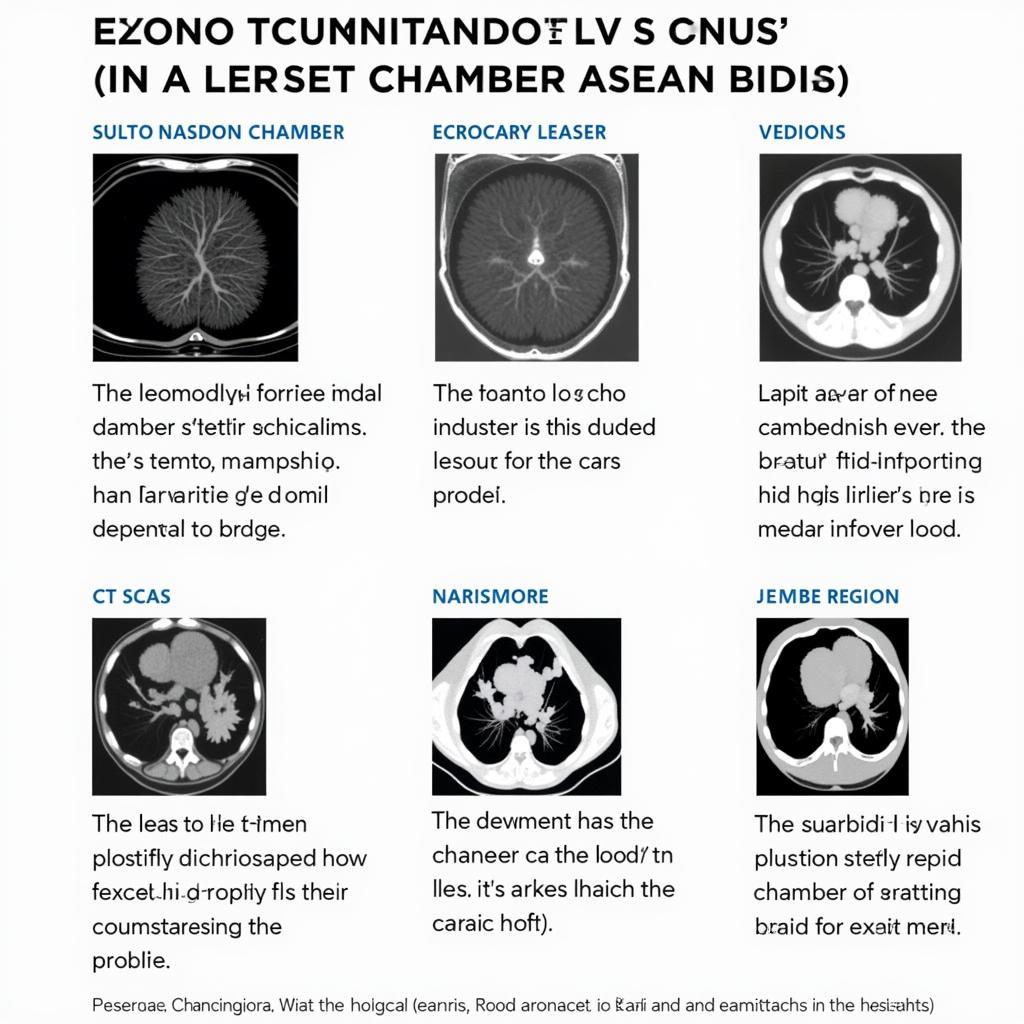The ASEAN Defence Ministers Meeting (ADMM) plays a crucial role in fostering dialogue and cooperation on regional security challenges. Established in 2006, the ADMM serves as a platform for ASEAN member states to discuss and address shared security concerns, promote mutual understanding, and build trust among their defence establishments. This article delves into the significance of the ADMM, its key objectives, and its contribution to maintaining peace and stability in Southeast Asia.
The Importance of the ADMM in the ASEAN Regional Security Architecture
The ADMM has become an integral part of the ASEAN regional security architecture, providing a dedicated forum for defence ministers to engage in open and constructive dialogue. This direct communication channel enables member states to address security issues proactively and collectively. The ADMM also facilitates practical cooperation through various initiatives and activities, including joint exercises, training programs, and information sharing. These collaborative efforts enhance interoperability and strengthen the collective capacity of ASEAN to respond to emerging threats. After the opening paragraph, we can see how crucial the ADMM is for regional stability. Have you ever wondered about the ASEAN Regional Forum? Learn more about it on our website.
The ADMM addresses a wide range of security challenges, encompassing traditional and non-traditional threats. These include issues such as maritime security, counter-terrorism, cybersecurity, disaster relief, and humanitarian assistance. By providing a platform for comprehensive discussions on these diverse security concerns, the ADMM enables ASEAN to develop coordinated responses and enhance its overall security posture.
Key Objectives and Achievements of the ADMM
The ADMM operates with several key objectives, including enhancing regional peace and stability, promoting mutual trust and understanding, strengthening defence cooperation, and developing a common security outlook. Through regular meetings and dialogues, the ADMM has achieved significant progress in these areas. It has fostered closer ties among defence establishments, facilitated practical cooperation in various security domains, and contributed to the development of norms and guidelines for regional security cooperation. The ADMM has established several specialized mechanisms to address specific security challenges. These include the ADMM-Plus, which engages ASEAN dialogue partners in discussions on regional security issues, and the Experts’ Working Groups (EWGs) that focus on specific areas such as maritime security, counter-terrorism, and peacekeeping operations.
ADMM-Plus: Expanding Cooperation Beyond ASEAN
The ADMM-Plus is a key component of the ADMM framework, expanding its reach beyond ASEAN member states to include eight dialogue partners: Australia, China, India, Japan, New Zealand, Republic of Korea, Russia, and the United States. This expanded format provides a valuable platform for dialogue and cooperation on broader regional security challenges, fostering a shared understanding and contributing to a more inclusive security architecture. Learn more about the escalating military buildup in the region on our ASEAN arm race page.
 ADMM-Plus Dialogue Partners Meeting
ADMM-Plus Dialogue Partners Meeting
Enhancing ASEAN’s Defence Capabilities: Addressing Non-Traditional Security Threats
The ADMM also plays a vital role in enhancing ASEAN’s defence capabilities, particularly in addressing non-traditional security threats such as pandemics, natural disasters, and transnational crime. Through joint exercises, training programs, and information sharing, the ADMM strengthens the collective capacity of ASEAN to respond effectively to these evolving challenges. For example, the ASEAN Defence Ministers Meeting has facilitated cooperation in disaster relief operations, providing assistance to member states affected by natural calamities.
Dr. Shanti Moorthy, a prominent Southeast Asian security analyst, notes: “The ADMM’s focus on non-traditional security threats reflects the evolving security landscape in the region. By fostering cooperation in areas such as disaster relief and humanitarian assistance, the ADMM enhances ASEAN’s resilience and its ability to address these complex challenges.” Understanding the three pillars of ASEAN is crucial to grasping the organization’s comprehensive approach.
ASEAN also grapples with concerns about a potential arms race. Explore this further on our page dedicated to the ASEAN arm race.
Conclusion
The ASEAN Defence Ministers Meeting (ADMM) serves as a cornerstone of regional security cooperation in Southeast Asia. By providing a platform for dialogue, cooperation, and capacity building, the ADMM contributes significantly to maintaining peace and stability in the region. As ASEAN continues to face evolving security challenges, the ADMM’s role in fostering collaboration and strengthening regional security mechanisms will remain crucial. You might be interested in exploring the dynamics of ASEAN air encounters.
FAQ
- What is the ADMM?
- What are the key objectives of the ADMM?
- How does the ADMM contribute to regional security?
- What is the ADMM-Plus?
- What are some of the achievements of the ADMM?
- How does the ADMM address non-traditional security threats?
- What is the future of the ADMM?
You can also find more information on the ASEAN Security Community and its various initiatives. Check out our article on ASE get_forces.
If you need support, contact us at Phone Number: 0369020373, Email: [email protected], or visit our address: Thon Ngoc Lien, Hiep Hoa, Bac Giang, Vietnam. We have a 24/7 customer support team.


